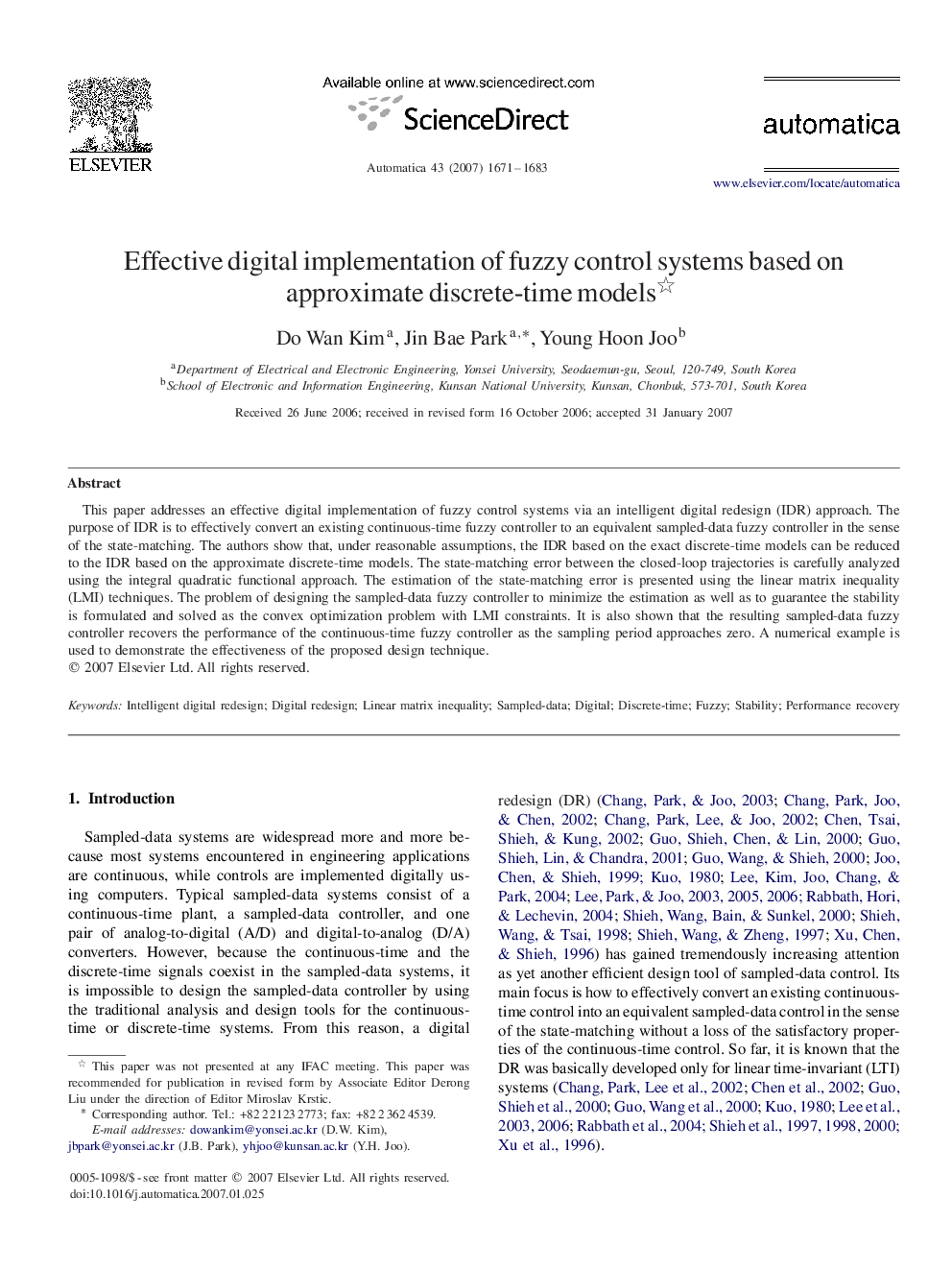| Article ID | Journal | Published Year | Pages | File Type |
|---|---|---|---|---|
| 697620 | Automatica | 2007 | 13 Pages |
This paper addresses an effective digital implementation of fuzzy control systems via an intelligent digital redesign (IDR) approach. The purpose of IDR is to effectively convert an existing continuous-time fuzzy controller to an equivalent sampled-data fuzzy controller in the sense of the state-matching. The authors show that, under reasonable assumptions, the IDR based on the exact discrete-time models can be reduced to the IDR based on the approximate discrete-time models. The state-matching error between the closed-loop trajectories is carefully analyzed using the integral quadratic functional approach. The estimation of the state-matching error is presented using the linear matrix inequality (LMI) techniques. The problem of designing the sampled-data fuzzy controller to minimize the estimation as well as to guarantee the stability is formulated and solved as the convex optimization problem with LMI constraints. It is also shown that the resulting sampled-data fuzzy controller recovers the performance of the continuous-time fuzzy controller as the sampling period approaches zero. A numerical example is used to demonstrate the effectiveness of the proposed design technique.
